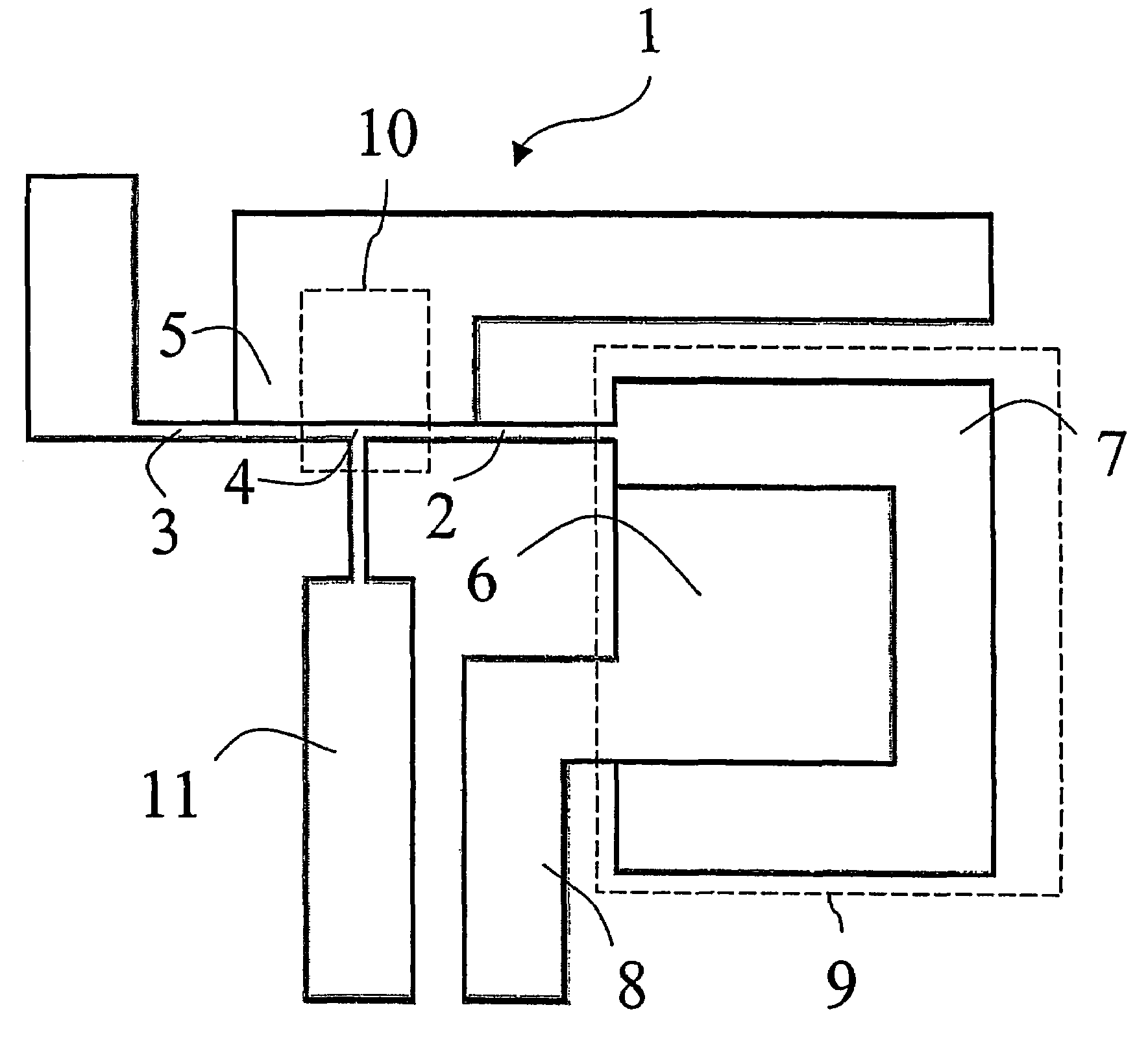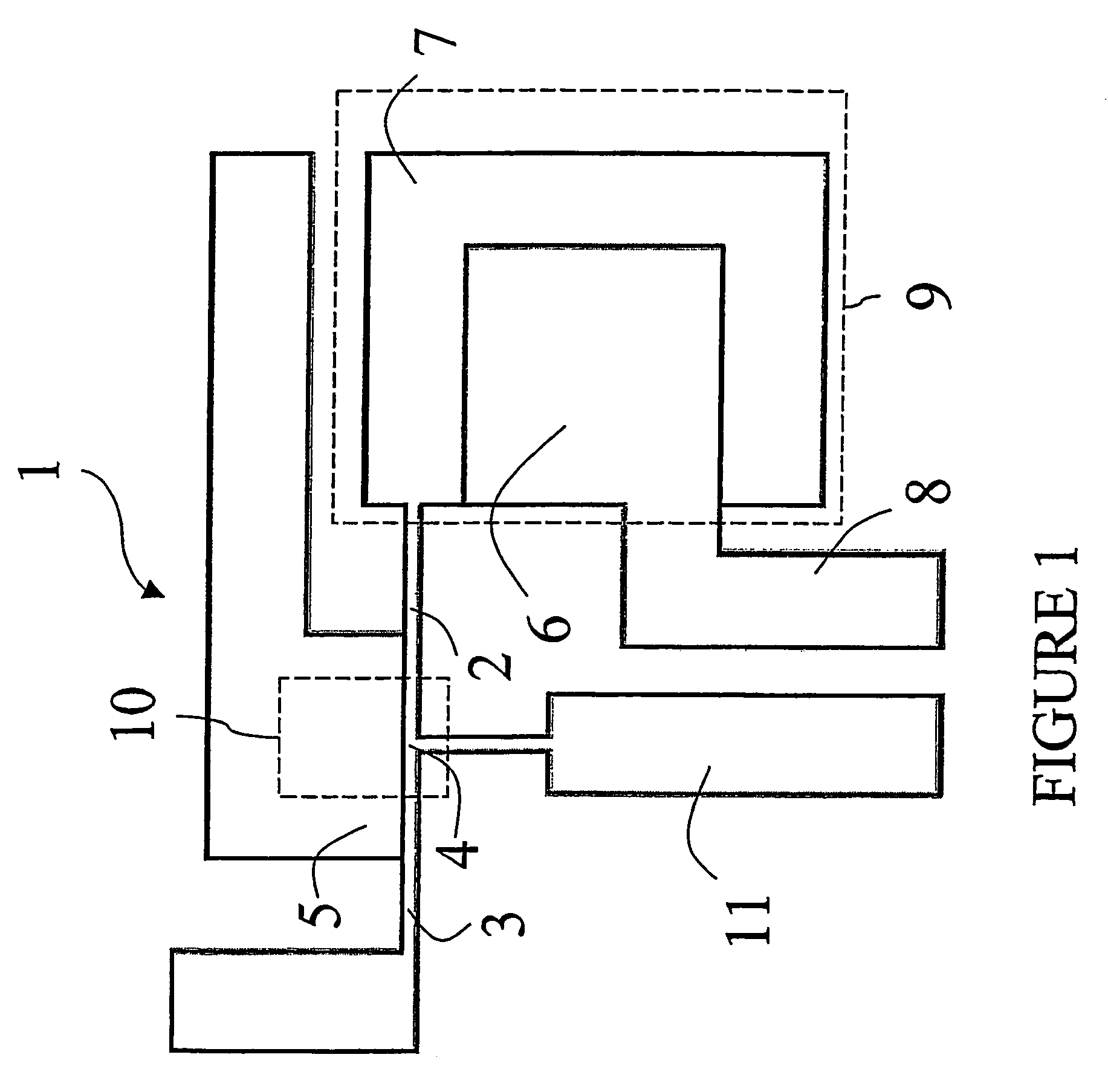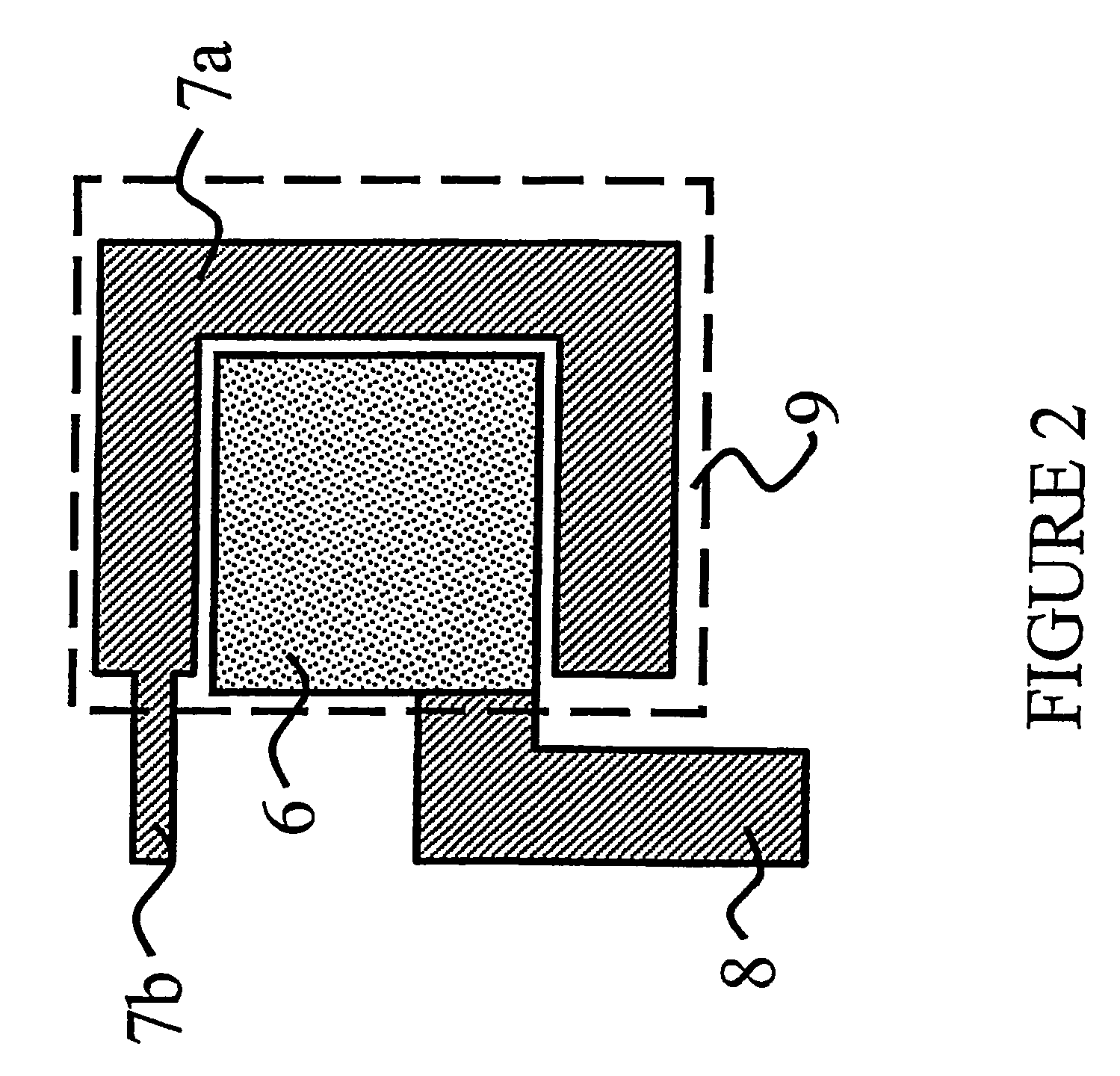Electrochemical device
a technology of electrochemical devices and pixel devices, which is applied in the direction of instruments, electrical equipment, and tenebresent compositions, can solve the problems of inability to manufacture electrochemical pixel devices that are truly capable of mass production, hampered practical use of pixel elements in prior art devices, and difficulty in achieving mass production, etc., to achieve the effect of maximizing the pixel area of the device and substantially improving the contrast ratio
- Summary
- Abstract
- Description
- Claims
- Application Information
AI Technical Summary
Benefits of technology
Problems solved by technology
Method used
Image
Examples
Embodiment Construction
Definitions:
[0065]Redox state: when reference is made to changes in the “redox state” of the electrochromic element, this is intended to include cases where the material in the element is either oxidised or reduced, as well as cases where there is a redistribution of charges within the element, so that one end is reduced and the other end is oxidised. In the latter case, the element as a whole retains its overall redox state, but its redox state has nevertheless been changed according to the definition used herein, due to the internal redistribution of charge carriers.
[0066]Electrochromic element: an “electrochromic element” in the devices of the invention is a continuous geometrical body, which can be patterned to different shapes, and is composed of one material or a combination of materials. The material(s) may be organic or inorganic, molecular or polymeric. Such an electrochromic element, whether it is composed of one material or is an ensemble of more than one material, combin...
PUM
| Property | Measurement | Unit |
|---|---|---|
| driving voltages | aaaaa | aaaaa |
| driving voltages | aaaaa | aaaaa |
| voltage | aaaaa | aaaaa |
Abstract
Description
Claims
Application Information
 Login to View More
Login to View More - R&D
- Intellectual Property
- Life Sciences
- Materials
- Tech Scout
- Unparalleled Data Quality
- Higher Quality Content
- 60% Fewer Hallucinations
Browse by: Latest US Patents, China's latest patents, Technical Efficacy Thesaurus, Application Domain, Technology Topic, Popular Technical Reports.
© 2025 PatSnap. All rights reserved.Legal|Privacy policy|Modern Slavery Act Transparency Statement|Sitemap|About US| Contact US: help@patsnap.com



